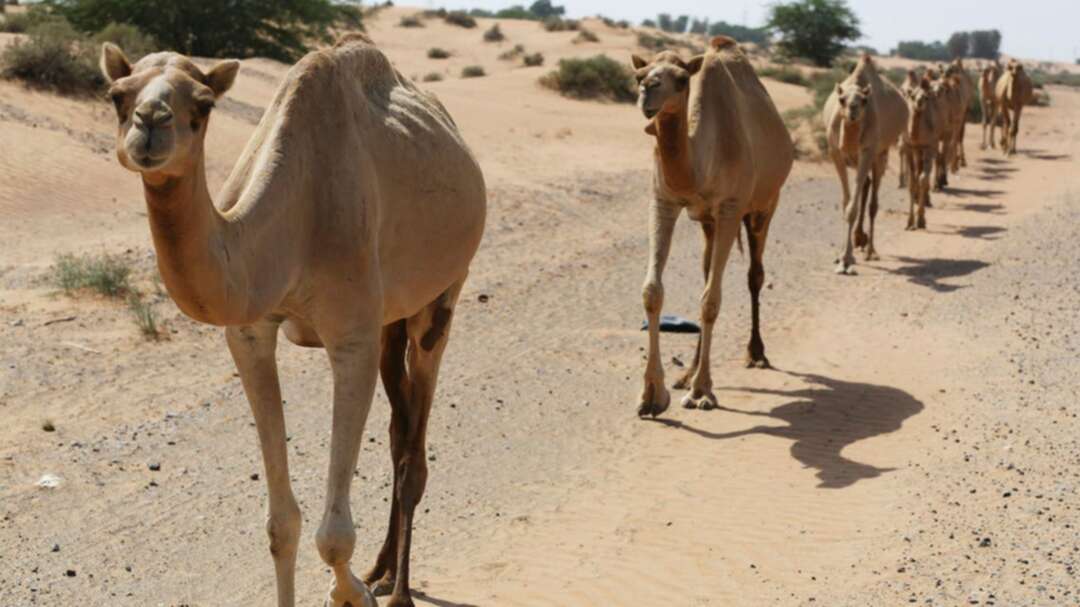-
UAE scientists injecting ‘immune’ camels with COVID-19 to study virus antibodies

A United Arab Emirates scientist is spearheading a study looking at how camels – immune to the COVID-19 virus – could provide vital answers into how to tackle the global pandemic and treat infected patients.
Dr. Ulrich Wernery, a veterinary microbiologist in Dubai and head of the emirate’s Central Veterinary Research Laboratory, and his team are injecting dead samples of the COVID-19 virus into dromedaries to examine the antibodies produced by the desert animals,
While camels were a known host of the Middle East respiratory syndrome (MERS) – the COVID-19 predecessor known to cause acute respiratory disease, gastrointestinal problems, kidney failure and death – studies have shown that dromedaries are actually immune to the new coronavirus – COVID-19.
This is because camels do not have the virus receptor – a host cell recognized by the virus as a gateway to entry in the cell – that humans and other animals have which leave them vulnerable to COVID-19, Wernery said.
“MERS-CoV,
“This makes it all very interesting. Besides humans, minks and cats – small and big, such as such a tigers and lions – can get COVID-19 and can transmit the virus into other cats and to humans and vice versa. But not camels.”
COVID-19 have been found among some animals. Gorillas in a San Diego Zoo were the first non-human primates to test positive for the coronavirus.
A cat in Surrey, in the United Kingdom, became Britain’s first animal to test positive. A tiger at Bronx Zoo was the first animal in the US to test positive. Other Big Cats have tested positive, including four lions at a Barcelona Zoo. A snow leopard at Kentucky Zoo also tested positive for the virus.
A mutant strain of the virus was also found in a Danish mink, which led to 17 million being culled.
A German Shepard was the first dog in the US confirmed with confirmed COVID-19.
However, scientists and the World Health Organization (WHO) say the risk of animals spreading COVID-19 to humans is low.
While the exact source of COVID-19 is unknown, WHO scientists believe it likely came from a bat.
Wernery told Al Arabiya English he hopes his landmark study can provide further answers into COVID-19 – and potentially provide an alternative treatment option.
“We have immunized our camels with a dead COVID-19 virus to produce antibodies and we use this blood to establish better tests for the diagnosis for COVID-19.”
“We hope that maybe one day we can use the blood - the antibodies - from camels to treat humans against COVID-19 infections.”
“This is all in the pipeline.”
To date, vaccines – which work to recognize and fight off the viruses and the bacteria they target - are the only recognized form of treatment by the WHO.
At least seven different vaccines have been rolled out in countries across the world. At the same time, more than 200 additional vaccine candidates are in development.
More than 150 million people worldwide have tested positive for COVID-19 since the outbreak of the pandemic.
source: Jennifer Bell
Image source: AP
Levant
You May Also Like
Popular Posts
Caricature
BENEFIT Sponsors BuildHer...
- April 23, 2025
BENEFIT, the Kingdom’s innovator and leading company in Fintech and electronic financial transactions service, has sponsored the BuildHer CityHack 2025 Hackathon, a two-day event spearheaded by the College of Engineering and Technology at the Royal University for Women (RUW).
Aimed at secondary school students, the event brought together a distinguished group of academic professionals and technology experts to mentor and inspire young participants.
More than 100 high school students from across the Kingdom of Bahrain took part in the hackathon, which featured an intensive programme of training workshops and hands-on sessions. These activities were tailored to enhance participants’ critical thinking, collaborative problem-solving, and team-building capabilities, while also encouraging the development of practical and sustainable solutions to contemporary challenges using modern technological tools.
BENEFIT’s Chief Executive Mr. Abdulwahed AlJanahi, commented: “Our support for this educational hackathon reflects our long-term strategic vision to nurture the talents of emerging national youth and empower the next generation of accomplished female leaders in technology. By fostering creativity and innovation, we aim to contribute meaningfully to Bahrain’s comprehensive development goals and align with the aspirations outlined in the Kingdom’s Vision 2030—an ambition in which BENEFIT plays a central role.”
Professor Riyadh Yousif Hamzah, President of the Royal University for Women, commented: “This initiative reflects our commitment to advancing women in STEM fields. We're cultivating a generation of creative, solution-driven female leaders who will drive national development. Our partnership with BENEFIT exemplifies the powerful synergy between academia and private sector in supporting educational innovation.”
Hanan Abdulla Hasan, Senior Manager, PR & Communication at BENEFIT, said: “We are honoured to collaborate with RUW in supporting this remarkable technology-focused event. It highlights our commitment to social responsibility, and our ongoing efforts to enhance the digital and innovation capabilities of young Bahraini women and foster their ability to harness technological tools in the service of a smarter, more sustainable future.”
For his part, Dr. Humam ElAgha, Acting Dean of the College of Engineering and Technology at the University, said: “BuildHer CityHack 2025 embodies our hands-on approach to education. By tackling real-world problems through creative thinking and sustainable solutions, we're preparing women to thrive in the knowledge economy – a cornerstone of the University's vision.”
opinion
Report
ads
Newsletter
Subscribe to our mailing list to get the new updates!






















